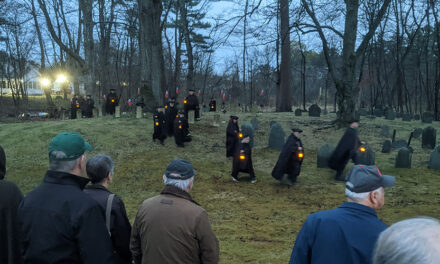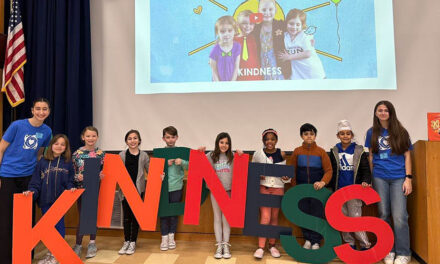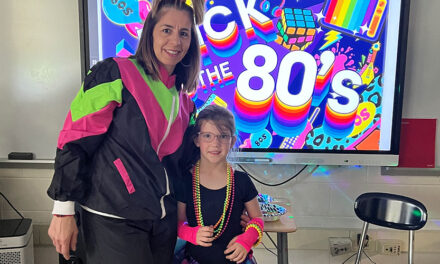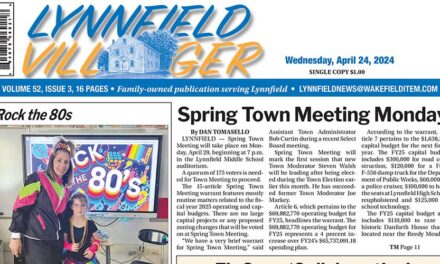Published April 7, 2021
LYNNFIELD — The Town Election on Tuesday, April 13 features a three-way race for two seats on the School Committee.
The three candidates running for a three-year term on the School Committee are incumbent Phil McQueen, Planning Board Chairman Brian Charville, and Together We Grow President Kate DePrizio.
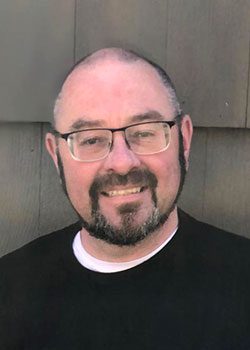
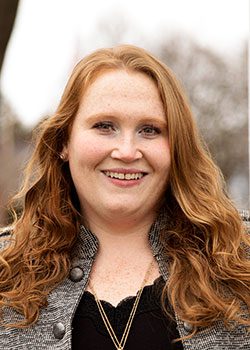
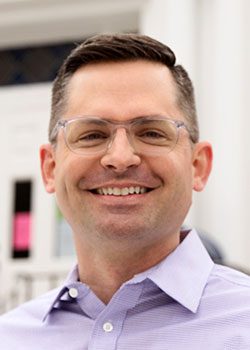
The Villager asked the three candidates to answer six questions. The following are their responses.
With students in grades K-12 officially back in school full-time this week, what role should the School Committee play while educators’ head into the trenches to help get students caught up academically and socially-emotionally?
Phil McQueen: The superintendent and the School Committee has a number of policies and operating protocols from the Massachusetts Association of School Committees (MASC) that define and govern our roles and actions, and I will be referring to them in my answers to these questions. The first is that we: “Support the educational welfare and well-being of all students, and to do this we establish a vision, create policies and assure accountability to sustain continuous improvement in teaching and learning, leaving the day-to-day operations to the Superintendent and staff.”
Additionally, “we represent the needs, interests and achievement of all students in the district and place these above all else in the decisions we make.” With these in mind, I see it as the School Committee’s role to clear a path for our dedicated excellent educators to do their best work. Our role is to make sure that they have all the resources they need. Our district strategic plans and school plans are laser-focused on the academic and social-emotional needs of all of our students in the Lynnfield Public Schools. The district-wide assessments that have been ongoing throughout this entire year have highlighted and pinpointed areas of strength and concern across all grade levels in math and ELA, so we know what we need to be working on as we finish out this school year and move to the next.
Thankfully, the School Committee and former Superintendent Tremblay’s persistence and advocacy for additional social-emotional support both in the curriculum and in the form of adjustment counselors at all levels puts us in a better place to mediate social-emotional issues as students return to full in person learning. As an educator myself, it is important to me that I believe my School Committee has my back, and as a School Committee member, I am proud to say that we very much have our teachers’ backs as we realize that they are the district’s most valuable resource. As point-person on the School Committee for the return to full-time in-person learning plan, I have had many conversations with our educators, leadership team and superintendent, and I am confident that all the many moving parts have been thoughtfully planned out and that the School Committee has helped clear a path for the resumption of full-time in-person learning.
Brian Charville: The School Committee must support the superintendent, teachers and staff with every possible resource as kids return to school and we all endeavor to help them catch up from the past 13 months. Near-term that entails the SC polling teachers and administrators for what they need and then ensuring that they have it. It should include everything from more, or different, support staff like adjustment counselors to instructional tools, furniture and personal-protective equipment. Mid-term, the SC must maintain support for educators and families as they consider summer school and other supplements so that kids are academically “on schedule” as much as possible entering their new grade levels next year.
And beyond that, once we are in the 2021-2022 school year, it will be incumbent on the SC to constantly ask all their constituents — parents, teachers, students, administrators — how things are going and what help is needed. I think we have a real chance to rebound well from all of this, but we should leave as little as possible to chance, identify challenges as far in advance as possible, and put every possible resource toward the academic and social-emotional support that the kids need now and in the coming months. At the same time, the SC has to guide the superintendent and her Administrative Leadership Team back to “normal” planning, goals and progress so that LPS can continue to excel.
Kate DePrizio: In this tumultuous and unrelenting year, we have witnessed the resiliency of our students and the amazing ingenuity and dedication of our phenomenal teachers. The School Committee’s role is to balance championing the needs of students and teachers while granting latitude for teachers and administrators to be unimpeded in their approach. As LPS students return to full in-person instruction, the School Committee best serves its constituents by remaining responsive to current needs while turning their focus to proactively advocating for the 2021-2022 school year.
Policies that support our overarching district goals and are reflective of the changing needs of LPS students, teachers and administration should be the utmost priority. Acute focus advocating for the anticipated increased social-emotional learning needs of next year must remain at the forefront of their work.”
The town is currently at a crossroads. Town Administrator Rob Dolan said during this year’s Budget Summit that declining new growth coupled with the financial impact of the COVID-19 pandemic will result in a period of “budgetary hardship” for the town. At the same time, increasing elementary school enrollment and complex social-emotional and special education needs is resulting in rising education costs. What skillsets do you have that you believe will help the SC navigate these challenging times?
Charville: In my “day job,” I work as chief operating officer and general counsel of a multimillion-dollar investment group. We manage hundreds of thousands of square feet of office and retail space, and more than $650,000,000 of client assets. I joined the group as a staff attorney, was promoted to general counsel, and then to chief operating officer. My promotions weren’t by chance — I have repeatedly proved myself as a business and legal leader. Budgetary planning and “living within our means” is part of what I direct, and it is an area in which I excel. The next few years for Lynnfield are going to involve a long series of very difficult conversations about “living within our means,” and balancing our “wants” and “needs” against our revenue.
My approach to budgeting is to start with absolute obligations — buildings, contracts, teacher and staff commitments, special education — and build up from there, finishing with the expenses that would be nice to have, but are not absolutes. Then we can have conversations about whether the Select Board and Town Meeting are willing to find additional revenue for anything not covered by existing revenues. The town is exceptionally lucky to have an experienced administrator and assistant to the administration, Select Board, accountant and Finance Committee, and LPS is lucky to have an experienced finance director. I have personal relationships with most of them already and am prepared to work with all of them to present the best recommendations to Town Meeting for our future budgets.
The truth is that many of the things that have made and will continue to make Lynnfield Public Schools widely respected — innovative classrooms, diversity, equality and inclusion initiatives, excellent SPED programs, low student-to-teacher ratios, well-maintained facilities, high test scores — are achieved through spending in the “wants” section of the budget as much or more than they are achieved in the “musts” section. If elected to the School Committee, I will work to expand all of those hallmarks of LPS and bring my “day job” knowledge and experience to the table to best serve our schools.
DePrizio: Challenging times like these will benefit from a fresh perspective and my adept ability to think outside the box. As a mom of four young children, 7-years-old and under, being resourceful, adaptable and a creative thinker is key to our harmonious existence. Over half of our town’s budget is appropriated for our schools. With rising education costs expected in the future, we must be willing to explore all options to offset this expense.
It is the School Committee’s responsibility to advocate for the needs of students and enhance the excellence in our schools. That said, fiscal responsibility paired with creative solutions that provide an opportunity to increase town revenue, are a necessity. I am comfortable with prioritizing need, compromising and making these tough decisions.
McQueen: I am a thoughtful communicator who has a proven professional track record of thinking outside the box. Research indicates that teachers make more decisions in an hour than air traffic controllers, and they need to be adept in this to be effective educators. An ability to think and re-think things through and then analyze the data of the outcomes and come up with another better way (if there is one) is something I do well on a daily basis.
Whether it is in my own lesson planning, teaching students, lesson tuning with my colleagues, evaluating and giving feedback, planning and delivering professional development, curriculum mapping, scheduling and making budgetary decisions at the school level my ability to multi-task and see all the sides of a story is a valuable skillset that I will bring to this period of budgetary hardship that we are going to face. I think the most important thing to do in these challenging budgetary times is to always be willing to listen, and to listen to learn, not just to talk. As a community, we need to think about how upcoming responsible development can have an impact on the schools. Additionally, development will happen one way or another, and it is important to advocate for townwide projects that will benefit us all.
My ability to listen and actually hear multiple perspectives and to then communicate thoughtfully is a skillset I bring to help the School Committee navigate these challenging times. When we set district and superintendent goals that also tie in with school improvement plans and individual educator goals, we need to be cognizant of what is a “want” and what is a “need.” As an experienced educator, who has seen many educational programs come and go I am also able to help the committee match programs that really meet our district needs.
What would be your approach toward communication be if you are either re-elected/elected to the School Committee?
DePrizio: Communication is key. This year, more than ever, the need for reflective, compassionate and transparent communication has been demonstrated. Fostering open communication between the School Committee, superintendent, educators and our constituents is paramount. While current policy limits the ease in which families can openly communicate with School Committee members during meetings, there are many ways to facilitate that necessity. One such way is through open community forums. This provides a unique and relaxed atmosphere that enables candid conversation and a collaborative community-centered approach.
During my campaign, I co-hosted four community forums and will continue to host bi-monthly community forums if elected. In these forums, I felt privileged to hear the struggles and successes of students and families. I will continue to be open and engaged in all communication. Currently, the School Committee discusses policy and votes on that policy often within the same meeting. Constituents do not have access to these written policies prior to the meeting. This makes having an informed discussion nearly impossible. I would like to see the School Committee share written policy and other pertinent informational materials along with their agenda to better enable thoughtful discussion. This year, using Smore for our email communication, has been an appreciated step in the right direction. Smore can easily translate into numerous languages and its broader accessibility to all families is welcome change.
As a PTO board member, I see the need for additional improvements to the LPS website. I face challenges when using the site, and I know what to look for, I can only imagine the frustration of the rest of the community. The website should be engaging and prompting users to readily find commonly searched materials, important numbers, forms, and email addresses. My approach to communication is innate to my character and how I initiate all interactions: Active listening, validation, kindness, empathy, compassion and creative problem solving.
McQueen: My approach to communication is that it should be transparent, efficient and effective. There should be no surprises and that it must be equitable. I feel that communication is an area that can always be improved and am always open to listen to suggestions on how we can improve communication. As a School Committee, the MASC guidelines state that we must: “dedicate ourselves to establishing and maintaining effective communication.” Part of this communication is that we “refer constituent concerns and complaints to the appropriate person within the district chain of communication” and that we “work collaboratively with town officials to improve our schools and actively seek ways to enlist their support for our efforts.” This last point ties in with the previous question, it is very important that the School Committee works closely and engages in two-way communication with other town officials for the overall betterment of our community. The School Committee is one team that works together as part of a larger team of town officials whose overall goal should be the good of the whole community.
Over the course of the COVID-19 pandemic, the School Committee has been very transparent in our communication. We had weekly meetings, we livestreamed and posted recordings of our meetings as community stakeholders were not able to attend them in person because of COVID protocols. Superintendent Vogel’s Smore is a good example of an improvement in communication — they are exceptionally detailed and absolutely equitable as they can be translated into all the 19 languages (currently) represented in Lynnfield. I am absolutely committed to transparency of communication, however there are certain things that we cannot really do with communication. For example, we cannot give a bulleted “highlights” overview of the School Committee meetings as a School Committee meeting is a business meeting that is held in public with minutes that are legally ratified at the next meeting. Our communication needs to be driven by facts, objectivity and equity, and I am always open to suggestions of improvements we can make.
Charville: When it comes to government in general, and schools specifically, I believe in as much communication as possible. I know that LPS has tried to communicate well this past year, and many classroom- and grade-level communications have been excellent, but I think that they all could be better integrated so that it is easier for parents to, say, visit the LPS website and retrieve updates by classroom and grade level. My wife and I find ourselves all too frequently searching through archived emails to recall important information.
Earlier in my career, I worked as an attorney for a superintendent and a school committee. Between college and law school, I worked as a teacher at a high school. I know the importance, both as a parent and “from the inside,” of streamlined communications between the classroom and home (and between the School Committee and home). Nowadays, there are so many excellent software programs, apps and websites — Google Classroom, Clever, Freckle, Smore – there must be a way to use them better without having to “reinvent the wheel.”
Outside of COVID, what should the School Department’s biggest focus areas be going forward? Are there any social initiatives you support and what other initiatives should be established?
McQueen: Five years ago, the School Committee re-evaluated our district strategic goals to focus on: Space issues, social-emotional learning, STEM and increasing world languages at the elementary level. In the summer of 2018, these goals remained with addition of security and technology updates. And by 2019, district strategic and superintendent goals were aligned thus: Highly functional leadership team (with sub-goals of building leadership capacity, shaping educator growth, and re-enforcing assessment and accountability); strengthen resources for assessment and accountability; expand Understanding by Design; and increase community engagement. I am providing this context here as much of what we do has multiple moving parts and is very much a long-term approach, it is not something that happens overnight and is made up by the hard work of multiple community stakeholders and most importantly our dedicated educators and leadership team. I am proud of the fact that we have achieved most of these goals despite also navigating the treacherous waters of the ongoing pandemic.
Throughout all this time, the School Committee worked closely with other town boards, officials and multiple stakeholders on the issue of space in the elementary schools, which culminated in the recent Town Meeting vote to approve funding for the expansion of Summer Street and Huckleberry Hill Schools. Pre-COVID, we were making great progress on our STEM and world language goals and these are initiatives that are important and that we as a School Committee remain committed to. Moving forward, our district strategic and superintendent goals continue to build on the previous goals and focus on: Building leadership capacity; educator growth; curriculum and assessment; assessment and accountability, and social and emotional wellness. The tent poles that support this work are: Safety and well-being of students, relationships, equity and academic growth. To my mind, the foundational value here is equity, which is something I commit to professionally as an Anti-Racist Educator and is a value that I have championed in my time on the School Committee. Ibram X. Kendi’s question in “How to be an Antiracist” resonates with me and drives my work as an educator and a School Committee member, “What if we realized the best way to ensure an effective educational system is not by standardizing our curricula and tests but by standardizing the opportunities available to all students?”
Our district’s commitment to equity is the foundation and part of the fabric of everything we do. I am very excited by, and very involved with, this work. I am a member of the system’s Equity and Diversity Committee and am happy to report that the district has set up three Equity and Diversity Committees focusing on: Students, systems and curriculum. From a systems perspective, we are laying the foundations that will ensure that the Lynnfield Public Schools have equity interwoven into every thread of its fabric. The district has started this crucial work. We have updated our district and superintendent goals so that equity is a core value. We are in the process of hiring an equity consultant, who will do a deep root- cause analysis equity audit among all stakeholders. Equity and its relationship to social-emotional learning and academic outcomes will be the foundation of all professional development in the district next year and the district is offering in partnership with METCO the third round of a professional development course entitled, “Striving for Equity.”
We have made a good start, but we have a long way to go. One of Superintendent Vogel’s many strengths and passions that stood out in her interview with the School Committee is her clear commitment to walking the walk and not just talking the talk regarding equity, I look forward to continuing this work with her if re-elected on April 13.
Charville: Beyond getting through the current school year and its challenges, I think the next focus should be ensuring that every student, teacher and administrator has what they need for a “normal” school year beginning in September. Achieving that takes rigorous attention to asking what the needs are, asking again, and then staffing and spending to meet the needs. I personally think that a “normal” summer for students and teachers is going to be so important for kids to get back into the routine of returning to school, being excited for learning and picking up where so many things left off when COVID began. This spring is going to be an important time for celebrating our graduating seniors, eighth-graders and fourth-graders as they all transition to new schools and opportunities.
Once we’ve got everyone through this school year and on to next, LPS’ biggest focus should be: 1.) Continued excellence of outcomes (test scores, graduation rates and college acceptances, academic extracurricular wins) and 2.) Diversity, Equality and Inclusion initiatives. These focuses must be directed by the School Committee to the superintendent and her team, they must be given the resources that they need when they ask for them, and they must be held accountable through objective metrics. I was lucky to attend very diverse (among students, teachers and staff) public primary and secondary schools, and I know from that experience that such diversity and inclusion is critical to students’ overall school experience. The perspective and humanity that comes from a diverse school environment is something that kids will carry with them for their entire lives after graduating from LPS.
Achieving it, however, takes continued policy action by the School Committee, follow up with and by the superintendent and the ALT, and budgeting and spending accordingly. The only thing worse than having no DE&I initiatives is having DE&I initiatives that aren’t cultivated, funded and adhered to. I think that there is a lot of opportunity for LPS to create diversity in hiring pipelines, build upon inclusive in-classroom initiatives, and continue to set the bar higher for meaningful DE&I progress in our schools.
DePrizio: I strongly support our burgeoning diversity, equity, and inclusion initiatives. If elected, I look forward to working with the subcommittees and being a part of the discussion. As an auntie to six beloved multiracial children, diversity and inclusion are deeply important to me and my family. I intentionally take steps to further my growth, examine bias, and actively participate in using my voice for change.
In my role as a La Leche League leader, my advocacy for mothers and infants has often been confounded by differing treatment options for the mother based on race and socioeconomic factors. This disparity has been to the detriment of mothers and infants by creating an additional hurdle for this emotionally vulnerable population to overcome. Through determined advocacy, I was able to protect and prioritize the needs of both mother and infant. By listening to a mother’s goals and concerns, I supported their ability to advocate for themselves and their infants. Providing the latest research and medical references helped to further discussion and encouraged mothers to be a collaborative partner in their own care.
I am passionate about social-emotional learning. I believe in teaching the whole child and that social-emotional learning is critical to our students’ success. As I sat next to my kindergartener during hybrid learning this fall, the need for connection was palpable. Her teacher was absolutely amazing in fostering friendship and building rapport over Zoom. Still, my 5-year old grappled with the task at hand. Welcoming students back is not the completion of our goal; it is instead the beginning. We need to be prepared to address the vast social and emotional needs not only from students that we anticipate it from, but from those that we don’t. Additional areas to expand upon are: Our relationship with A Healthy Lynnfield, increasing peer-based programing, increasing advisory board opportunities, continuing to increase mindfulness, exploring other SEL initiatives like A Positive Action and fostering a greater sense of community.
Educators and school staff will be receiving a 2.5 percent raise in the final year of the district’s various collective bargaining agreements. What strengths would you bring to the bargaining table next year?
Charville: My “day job” as operations chief and general counsel for an investment group entails almost constant negotiations. It’s what I do. A good negotiation is one for which you’re well prepared, recognize the humanity of the other side, use common sense and realize that a good compromise might be one that leaves both sides a little unhappy. I think that teachers’ and staff unions are good things and can serve their members well. At the bargaining table, their interest is first and foremost their members. And so the School Committee must have its constituents — the town, students and parents — first and foremost in mind.
The town needs someone like me — faithful, smart, circumspect, honest, realistic, optimistic — on the School Committee side of the table. I of course wouldn’t be there as the School Committee’s lawyer (they have someone great for that already), but I will be able to leverage all of my business and legal training, experience and knowledge to brainstorm, communicate and negotiate collective bargaining agreements that position LPS well for the coming years.
DePrizio: Negotiating is an art, a challenge that beckons a thoughtful approach. Preparation, active listening and asking the right questions are key to building rapport and successful negotiations. By focusing on compassion and validation, we can more readily find creative ways to collaboratively solve impasses. While leading Together We Grow-Lynnfield School Expansion, I welcomed hard conversations and didn’t shy away from discourse with residents that opposed school expansion. Prioritizing a balanced perspective that appreciates all sides of an issue proves to be to the benefit of all.
Surrounding myself with other professionals who offer unique perspective, resources and educational experience will continue to be an asset. Our candid discussion helps to broaden my perspective and approach while advocating for need.
McQueen: Additionally, to give some historical perspective, back in 2009 the teachers received a zero percent pay raise because of the economic recession. With the recovery and locally, the boost to town funds from MarketStreet, we have been able to better compensate our teachers and stay competitive with other local communities. No teacher does the job for the money; however, they deserve to be paid well for the challenging job they do. Furthermore, in light of the last year and the incredibly grueling task that hybrid teaching turned out to be, I can safely say they earned every penny.
As a point of clarification, the School Committee only negotiates directly with the teachers and paraprofessionals, so the 2.5 percent only specifically refers to the collective bargaining agreement between the School Committee and the Lynnfield Teachers Association. I bring a unique skill set and multiple perspectives to next year’s bargaining table.
As ELA department chair at Lynn Classical, I have the perspective of a teacher and an administrator. From my former work with the American Federation of Teachers, I have bargained from the teacher’s side of the table. From my work on the School Committee, I have bargained from the district side of the table. I am also able to effectively compartmentalize my roles in life. When I am a teacher, I am a teacher. When I am an administrator, I am an administrator, and when I am a member of the School Committee, I am a member of the School Committee. Being able to see all these perspectives, without them bleeding into each other is valuable that I bring to the School Committee and I am proud that I earned the trust of my fellow School Committee members early on because of my ability to compartmentalize roles and see multiple perspectives.
The tone of this race has been dark at times. Between statements read at meetings, certain letters, social media posts and email blasts, there seems to be less civility this year. Do you vow to reverse the tone that has been amplified of late? What collective approach should the School Committee as a whole take to reverse the trend?
DePrizio: This year has been filled with unprecedented hardship; extending grace to others during this challenging time should be the rule and not the exception. During my campaign, hurtful rhetoric has been challenging to navigate. I commit to continuing to hold myself to a higher standard. I am a compassionate leader, a uniter and an empathic heart by nature. Often my kindness is mistaken for weakness, but I find it to be one of my greatest strengths.
Caring for others and caring for our community is what drives me. The School Committee’s collective approach and tone should be one of inclusion, validation, compassion and transparency. As representatives of the community, we must hold ourselves to a higher standard and exemplify the kind of character we wish to instill our children. Essential characteristics like active listening, accountability, challenging bias and communicating with kindness embody our combined responsibility as representatives.
McQueen: Yes, the tone of this race has been dark. As I did in 2018, I have run a clean, honest and positive campaign in 2021, despite numerous attempts to muddy the waters between fact and fiction. As one of the many people who have reached out to me that I do not even know personally, put it, “the negative noise is always the loudest.” I absolutely vow to reverse this trend. The School Committee is a team that needs to trust each other. Going back to MASC again, School Committee members have to: “demonstrate professional and collegial relations with one another” and “maintain trust and mutual respect between and among School Committee members, the superintendent and the administration by treating everyone with dignity and respect, even in times of disagreement” as well as “base our decisions on the available facts, vote our convictions, avoid bias, and uphold and support the decisions of the majority of the School Committee once a decision is made.”
As School Committee members we, “agree that our positions will not be used for personal or partisan gain” and “acknowledge that a School Committee meeting is a business meeting that is held in public – not a public meeting” as well as “respecting the leadership roles of the School Committee chair and superintendent.” I have done this over the last three years, and if re-elected will continue to do so. This divisiveness and nastiness has to stop and as I have had no part in it, then it is easy for me to vow not to continue it. We have too much important work to do to get everything as close to normal to be distracted by petty politics.
The School Committee throughout this pandemic has always had the objective to get the students and educators back to school, but only when safe to do so. And we, along with many other stakeholders, did. It is time to move on with the important work of making this excellent school system even better. A vote for me on April 13 is a vote for: Experience, compassion, empathy, integrity, attentiveness, independence and a commitment to all stakeholders in the Lynnfield Public School System. Please vote McQueen on April 13. If you have any additional questions, please feel free to reach out to me at: filmcq@aol.com, and check out my Phil McQueen: Lynnfield School Committee page: https://www.facebook.com/PhilMcQueenLynnfieldSchoolCommittee. #VoteMcqueenOnApril13.
Charville: I am committed to an honest and constructive tone in my campaign and, if elected, in my service on the School Committee. That has been my approach to every second of my service as an elected member and then the chair of the town’s Planning Board the past four years. It has been an honor to be able to serve the town in this way. If you want to know how I approach public office, please review my dedicated and earnest service leading the Planning Board.
As part of my preparations to serve the School Committee well if elected, I already have reached out to every current School Committee member with whom I might serve. The purpose of the outreach is to begin dialogues so that we are able to hit the ground running together and not lose a step after the election. Since joining the Planning Board in 2017, I know the importance of having rapport with other members in order to serve the public well. I want to be a party to and advocate of truth, solutions and progress, nothing else. The School Committee is not able to control what happens on social media or in a letter to a newspaper editor. But the School Committee is able to control its own communications, the ease with which constituents may participate at School Committee meetings, and encourage the superintendent’s and principals’ communications. If each of those things improves and is more streamlined, then the School Committee itself will feel like it can lower its guard and communicate more easily with the public whom it serves.

